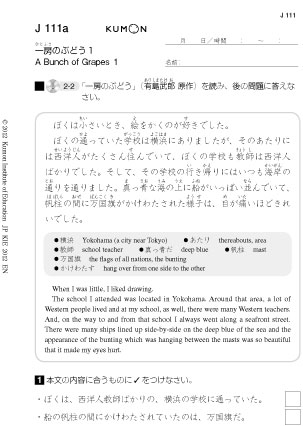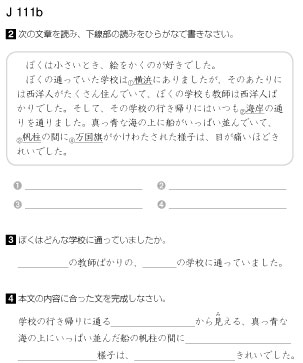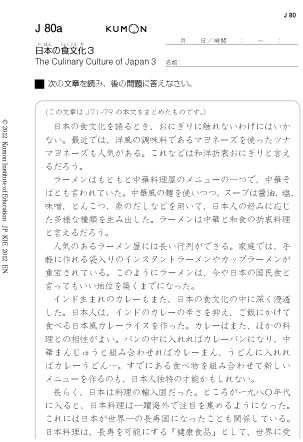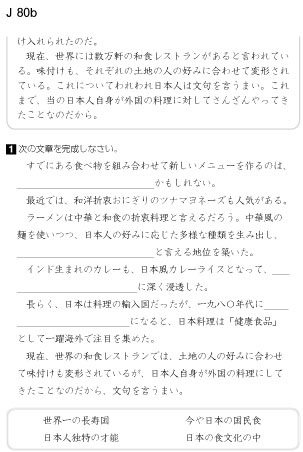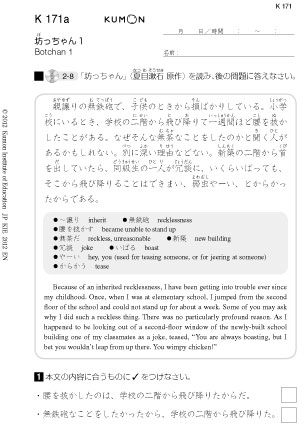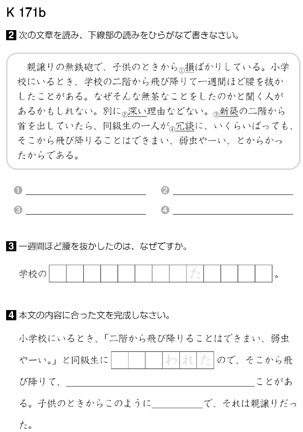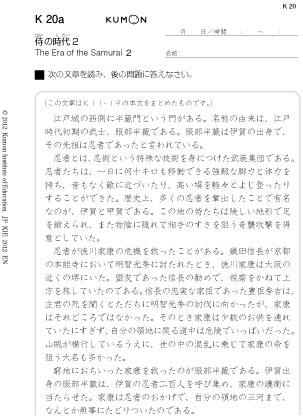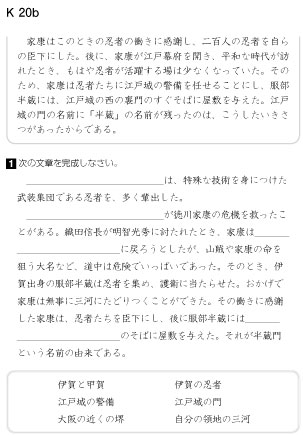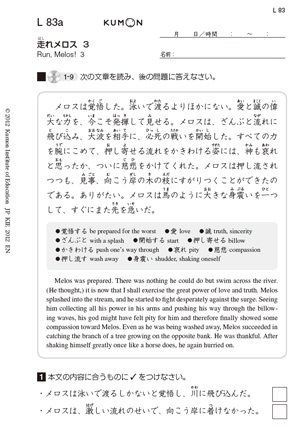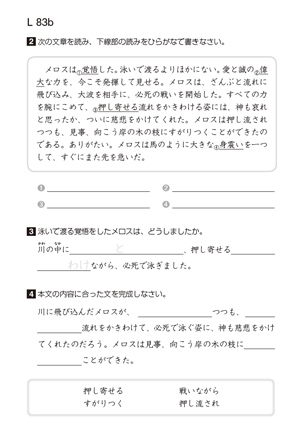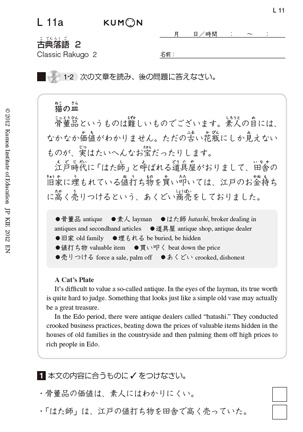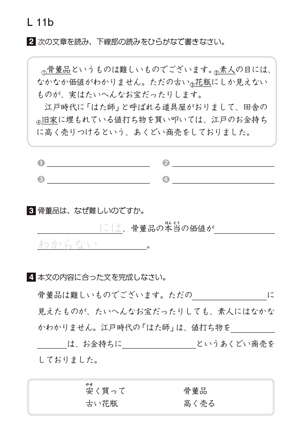What "skills" can I acquire by studying at each level?
Advanced Level
At the advanced level, you will develop your vocabulary and reading comprehension through reading original books in Japanese. You will also learn the various expressions that you have studied up to Level I in context.
By the time of completing Level L, the final level of the Kumon Japanese Language Program, you will have learned about 1,000 kanji (accumulated) and about 6,380 words (accumulated), and studied a long passage of about 6,000 characters, which will be the longest piece of work you will study. Through these studies, you will gain sufficient ability to try the Japanese-Language Proficiency Test Level N2.
※For those who want to try higher levels, the Kumon Kokugo (Japanese) Program (for Japanese native speakers)
is available to continue your study, after you have completed your study of the final level of Kumon Japanese
Language Program.
Level J
| Skills to acquire |
|
|---|---|
| Subjects of works |
Ten works in total including, |
Level K
| Skills to acquire |
|
|---|---|
| Subjects of works |
Eight works in total including, |
Level L
| Skills to acquire |
|
|---|---|
| Subjects of works |
Nine works in total including, |
